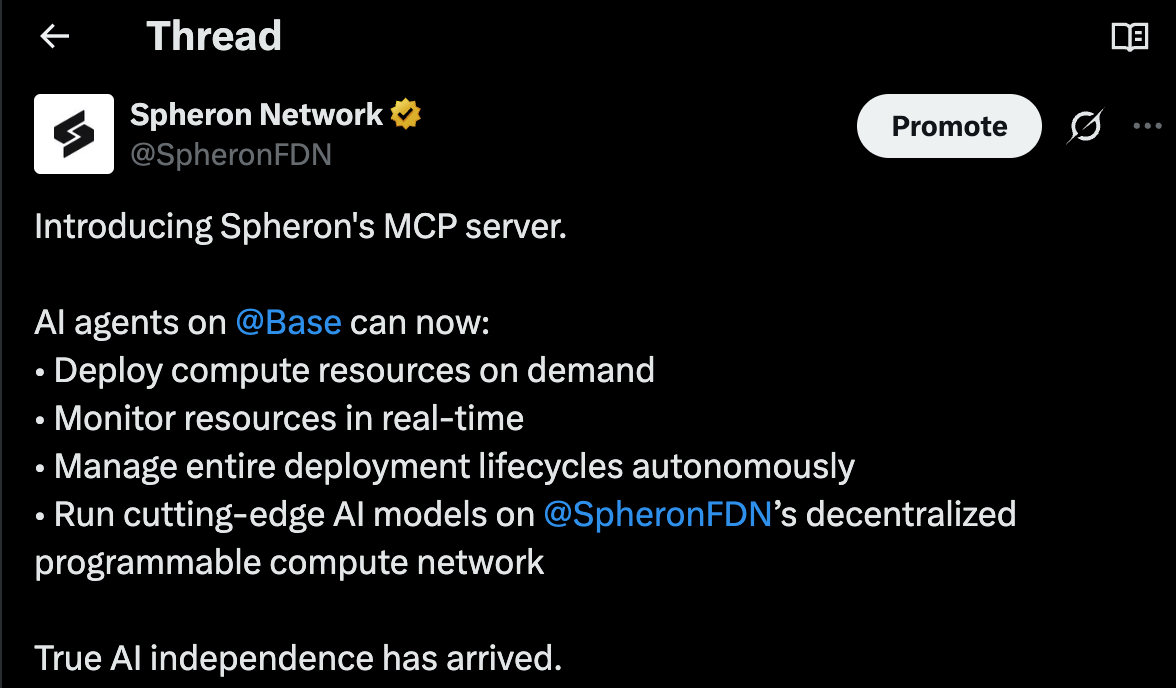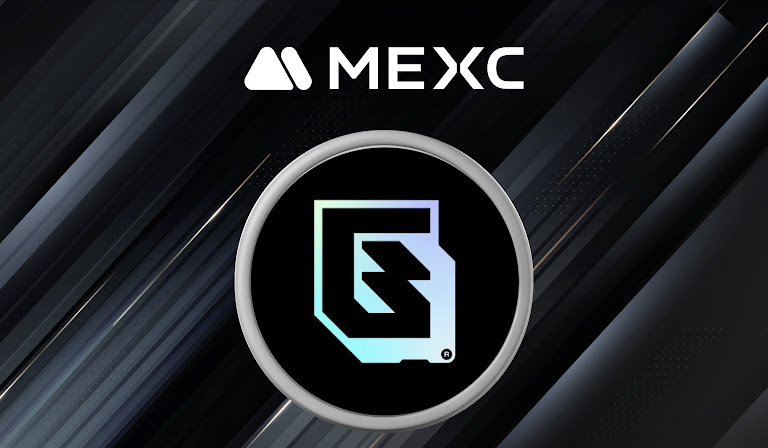<
This implementation follows the standard Model Context Protocol, ensuring compatibility with the broader MCP ecosystem while enabling AI systems to break free from centralized infrastructure dependencies. By allowing agents to deploy, monitor, and scale their infrastructure automatically, Spheron’s MCP server represents a significant advancement in autonomous AI operations.
The implications are profound: AI systems can now make decisions about their computational needs, allocate resources as required, and manage infrastructure independently. This self-management capability reduces reliance on human operators for routine scaling and deployment tasks, potentially accelerating AI adoption across industries where infrastructure management has been a bottleneck.
Developers interested in implementing this capability with their own AI agents can access Spheron’s GitHub repository at https://github.com/spheronFdn/spheron-mcp-plugin
Addressing Concerns: Security, Lock-in, and Adoption Challenges
Despite its advantages, MCP faces legitimate scrutiny regarding several potential issues:
Security Considerations
Critics have raised concerns that a centralized protocol managing multiple integrations could create new attack vectors. Does MCP inadvertently create a single point of vulnerability by providing a standardized way to access diverse systems?
Proponents counter that MCP’s standardized security framework enhances protection by implementing consistent authentication, encryption, and permission controls across all integrations. Rather than the patchwork of security measures typical in custom integrations, MCP establishes unified security practices that can be comprehensively audited and updated.
Ecosystem Lock-in
Some observers worry that widespread MCP adoption could create unhealthy dependencies on specific AI providers. If a single protocol becomes dominant, could this limit innovation or create vendor lock-in?
This concern highlights the importance of MCP’s eventual standardization through open governance. For MCP to realize its full potential, the protocol will likely need to evolve beyond its origins at Anthropic to become an industry standard developed collaboratively and implemented across AI ecosystems.
Spheron’s implementation of the standard protocol for decentralized compute is an encouraging sign that the ecosystem is diversifying beyond a single provider, potentially addressing lock-in concerns.
Adoption Learning Curve
Transitioning from traditional integration methods to MCP requires a mindset shift for development teams. Organizations with substantial investments in existing API-based integrations may hesitate to adopt new approaches, particularly if they lack experience with contextual AI systems.
Early adopters report that while MCP does require initial learning, the long-term efficiency gains outweigh these transitional costs. The key to successful adoption appears to be starting with focused use cases where contextual awareness delivers clear value before expanding to broader implementations.
The Future Horizon: Where MCP Is Headed
As MCP gains traction, several evolution paths are emerging:
Industry-Specific Adaptations
Expect to see specialized MCP implementations tailored to the unique requirements of specific sectors. Healthcare MCP variants might incorporate HIPAA compliance features, while financial implementations could integrate regulatory reporting capabilities. These industry-specific adaptations will accelerate adoption in specialized domains.
Enhanced Security Frameworks
As MCP deployment expands, its security capabilities will likely evolve to address emerging threats and compliance requirements. Future iterations may incorporate advanced encryption standards, granular permission controls, and comprehensive audit capabilities to satisfy enterprise security requirements.
Interoperability Standards
Interoperability standards will be essential for MCP to achieve its full potential. Industry consortia may emerge to govern protocol evolution, ensuring consistent implementation across AI providers and preventing fragmentation into competing proprietary variants.
AI Infrastructure Independence
Spheron’s advancement in enabling AI agents to manage their own infrastructure represents an early glimpse of a future where AI systems operate with increasing autonomy. This trend toward infrastructure independence may become a defining characteristic of advanced AI systems, with MCP serving as the critical enabling protocol.
Conclusion: MCP as a Catalyst for AI’s Next Phase
Model Context Protocol represents more than a technical advancement in AI integration it embodies a fundamental shift in how AI systems interact with the digital ecosystem. MCP addresses one of the most significant limitations in current AI deployment by enabling contextually aware, dynamic connections between AI and external tools.
The protocol’s ability to maintain context across interactions, discover available resources automatically, and communicate bidirectionally transforms AI from isolated systems into connected intelligence networks. This evolution has profound implications for organizations leveraging AI across workflows, decisions, and customer experiences.
Implementations like Spheron’s MCP server demonstrate how quickly the ecosystem is evolving, with new capabilities emerging that enable unprecedented levels of AI autonomy and independence. As adoption grows and the protocol matures, MCP may be remembered as a pivotal development that unlocked AI’s next growth phase the transition from powerful but isolated models to deeply integrated, contextually aware systems that function as seamless extensions of human capabilities.
]]>
Source link











 Source: @DoodlesSalesBot on X
Source: @DoodlesSalesBot on X































